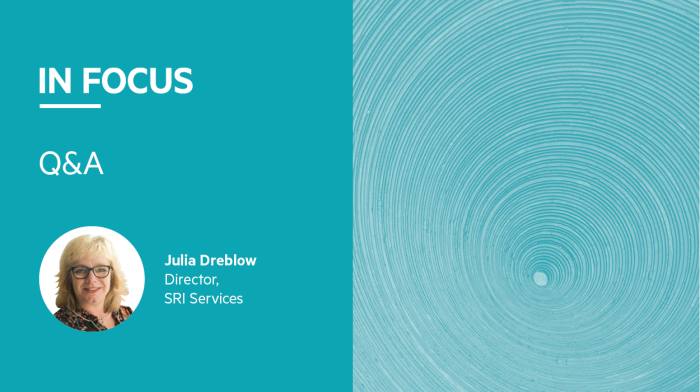
The sustainable investing market has made "tremendous progress" over the past decade, but capital has yet to be reallocated as it should be, says Julia Dreblow.
The director of investment research company SRI Services and founder of Fund EcoMarket says a lot has changed since she started campaigning for environmental, social and governance-based investing years ago, but there is more to be done to deal with the real-world risks.
In a Q&A with FTAdviser In Focus, she also explains what progress needs to be made when it comes to communicating a product's green credentials, and what a well-functioning next generation 'ESG 2.0' market could look like.
FTA: You have been campaigning for ethical investing for a long time – how do you assess what’s happened in ESG investing over the past decade?
JD: Sustainable investment and ESG have made tremendous progress since the Paris Climate Agreement in 2015. Overall, this is very positive. There are far more investors who recognise the importance of environmental, social and governance issues – and who care – but there are also significant teething issues.
Too many, often newer, industry participants still view the area as a means of gaining market share whilst only lightly tweaking their product offerings and calling them ESG – so capital has not yet been reallocated as it should be.
FTA: With a greater ESG market comes a greater problem of greenwashing. Are you surprised about the issues we are facing in this space?
JD: I am not surprised by the uptick in ‘greenwashing’ – although I have been pleasantly surprised by how many people are infuriated by it.
The misrepresentation of green credentials is a major problem; it distorts markets, erodes trust and makes climate targets harder to meet. However, I do not believe it is always intentional.
Some greenwash allegations result from differences in opinion, and sometimes greenwash is simply overexuberant marketing born of inexperience.
There are funds that have shocked me, where it seems unlikely that over-exaggeration was accidental, and some fund names should be changed – but such examples are in the minority.
FTA: With the market being so big and complicated, making it hard for investors to navigate, what must be done to change ESG? What could ESG 2.0 look like?
JD: The ESG market is hard to navigate because of its diversity – and this is not something I would expect to ever change as both client and fund manager aims and opinions vary.
Expertise also varies, and some managers are more conservative than others. Diversity of strategy aside, ESG 2.0 must have two core components.
One is improved communication – to ensure clients know what funds and fund managers do – the other is raising our ambition in terms of the allocation of capital. The anticipated sustainability disclosure requirements consultation will focus largely on the former.






